Key Takeaways
- Effective HOA security coordination in Menlo Park relies on open communication, resident input, and collaboration with local law enforcement to create safer neighborhoods.
- Key security features include access control systems, surveillance cameras, property maintenance, and clear emergency response plans for swift, organized action.
- Regular meetings and inspections help identify safety gaps, address resident concerns, and ensure that security measures evolve with community needs.
- Selecting the right security partner involves considering experience, technology offerings, communication style, insurance coverage, and resident feedback.
- Balancing privacy, budget constraints, and vendor selection are ongoing challenges, making flexibility and clear priorities essential for successful security management.
Living in Menlo Park, I know how important it is for communities to feel safe and connected. Homeowners’ associations play a big part in creating that sense of security, but coordinating effective protection can feel overwhelming. With so many neighbors, vendors, and concerns to juggle, it’s easy to wonder if everyone’s needs are really being met.
Have you ever worried whether your HOA’s security measures are truly working for everyone? Maybe you’ve asked yourself if there’s a better way to keep your neighborhood safe and welcoming. I’ve seen firsthand how thoughtful planning and open communication can make all the difference. Let’s explore how HOAs in Menlo Park can come together to create safer, more confident communities for everyone.
Overview of HOA Security Coordination in Menlo Park
HOA security coordination in Menlo Park hinges on teamwork among residents, board members, and service providers. I recognize that every community has its priorities. Some residents request visible patrols or well-lit pathways, while others prefer discreet monitoring solutions. What security concerns matter most to you right now?
Routine meetings give everyone a chance to share ideas and learn about trends in property safety. I’ve seen neighbors express worries about package theft, unfamiliar vehicles, or unlocked entryways. Clear communication—via group emails, bulletins, or digital platforms—means everyone stays informed about incidents and prevention tips.
Collaboration with local law enforcement and emergency services boosts neighborhood protection efforts. By keeping strong contacts with these professionals, I help create detailed response plans for various situations. Has your association coordinated with local police or fire departments to address community risks?
Consistent property maintenance forms a foundation for security. Trimmed shrubs, functioning locks, and regular inspections help deter unwanted activity. I find that organized walkthroughs and checklists keep little problems from becoming big threats. Which upkeep tasks seem most important for safety in your area?
I value neighbor input, as it helps set priorities for new cameras, lighting choices, or entrance improvements. Open conversations make residents feel heard and increase participation. What feedback would you share about making our community more secure?
Importance of Effective Security Coordination for HOAs
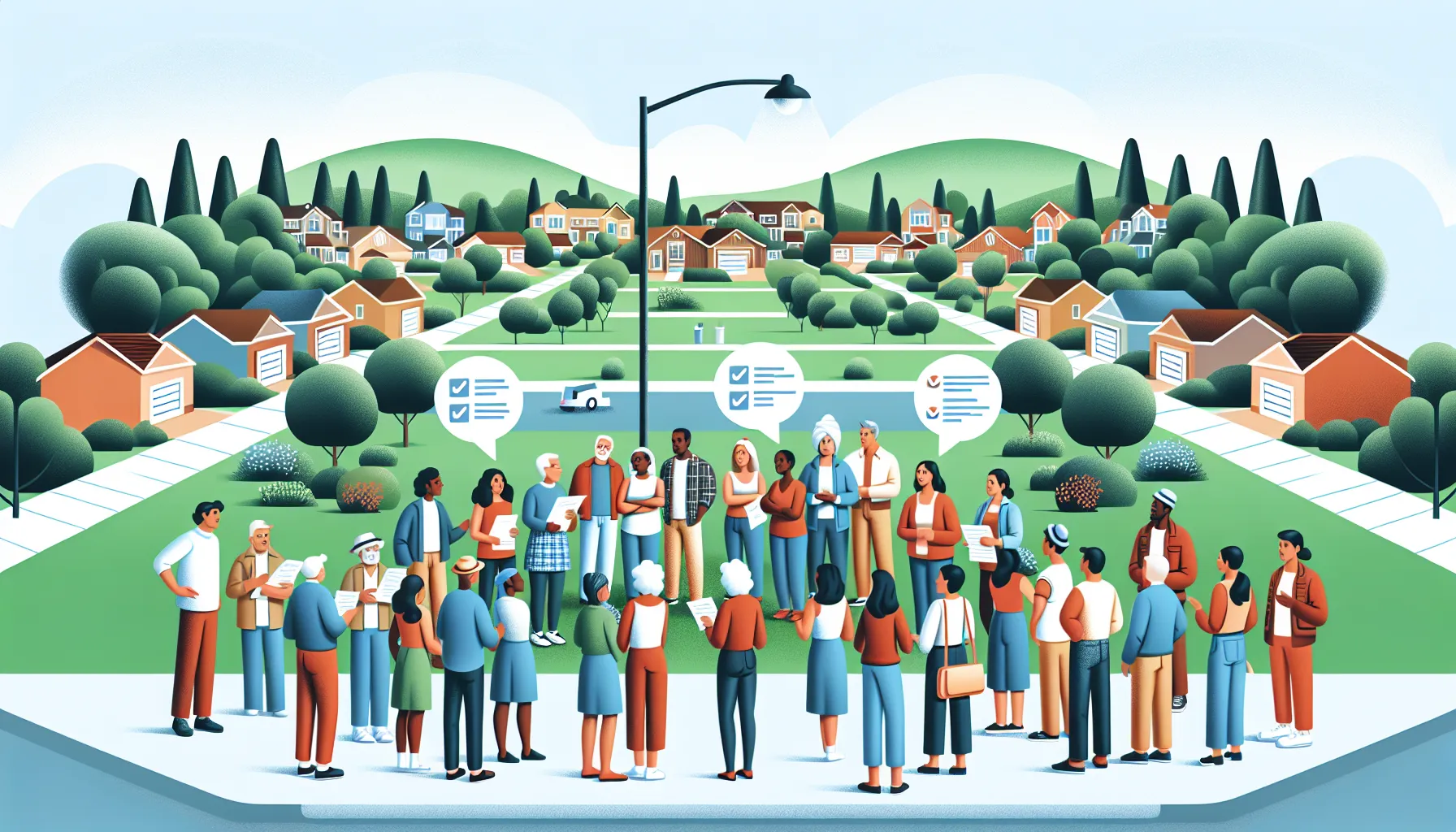
Clear security coordination protects HOA communities in Menlo Park. Good planning helps everyone feel secure where they live. I see that open communication between residents, board members, and professionals creates a shared sense of responsibility. Does your community talk openly about safety needs and concerns? I notice that when neighbors feel heard, they become more invested in community security.
Routine security checks prevent small maintenance issues from turning into bigger risks. Sample irritants include broken locks, poor lighting, and overgrown landscaping. I’ve observed that scheduled inspections make these problems easier to spot and fix quickly. Would an inspection checklist help identify safety gaps in your neighborhood?
Statistics reveal that collaborative efforts with local law enforcement reduce response times. For example, regular meetings with police and emergency responders help communities prepare for unexpected situations. Have you considered forming a neighborhood watch or hosting public safety workshops?
Property standards also discourage property-related crimes. Well-kept homes, tidy shared spaces, and visible patrols send a clear message: the community cares about security. I find that residents who participate in community activities build trust and look out for each other. How do you encourage neighbors to connect and play a part in community safety?
Every HOA has different risks and priorities. I’ve seen that listening to residents’ input allows boards to focus on real issues, from package theft to property access. Consistent, well-organized security coordination keeps everyone safer and helps maintain property value. What security features would make you feel more at ease in your neighborhood?
Key Features of Security Coordination in Menlo Park
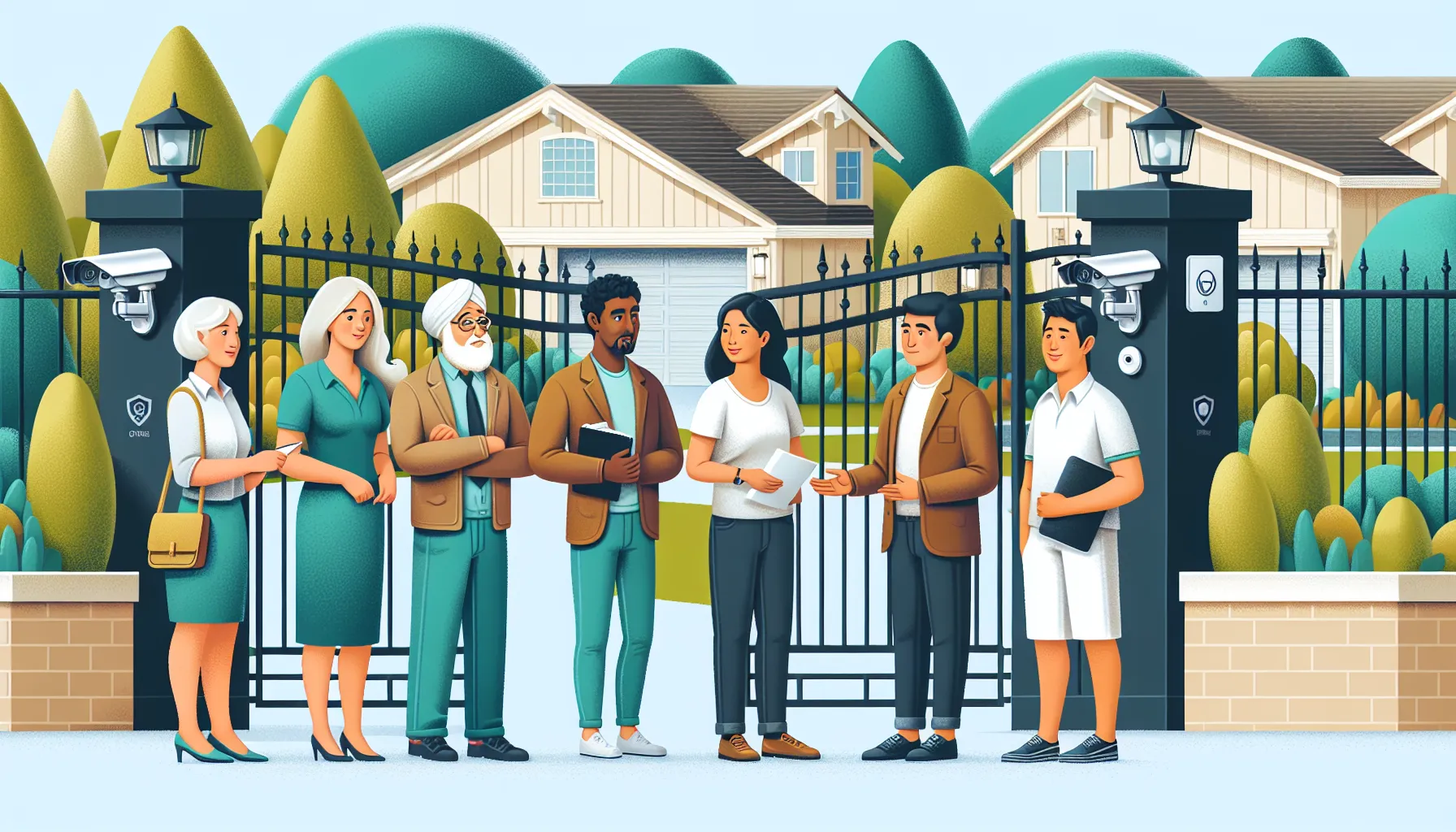
Residents and board members in Menlo Park communities often ask how neighborhood security works best in HOA environments. What are the critical features that protect property, give peace of mind, and support everyone’s daily routine? Let’s look at essential systems and habits that shape safe neighborhoods.
Access Control Systems
Selecting the right access control system gives clarity on who enters or exits community spaces. Keypads, gate cards, and visitor logbooks limit access to authorized people only. In some neighborhoods, I’ve seen phone-based entry or guest codes help control deliveries and maintenance visits. Physical barriers like secured gates often deter trespassers. Does your HOA already use an entry tracking system for guests and contractors? Sharing frequent updates about access changes keeps everyone in the loop.
Surveillance and Monitoring
Strategic placement of cameras covers entry points, parking lots, and recreation areas. I find that regular checks and simple upkeep of these systems prevent gaps in coverage. Clear signs about video monitoring can discourage mischievous activity. Eco-friendly options, such as solar-powered units, show up more often in Menlo Park. Reviewing camera footage quickly—even from a smartphone—means incidents get addressed with minimal delay. How often does your board review camera effectiveness or consider lighting improvements?
Emergency Response Planning
Clear, practiced plans for emergencies help neighbors feel prepared. Posting evacuation routes, assembling a list of emergency contacts, and designating a point person for communication promote quick action when issues arise. Community-wide drills encourage teamwork and clarify roles. Sharing safety resources from local officials connects residents to current procedures. Has your HOA discussed who leads coordination during a crisis? Regular feedback from residents helps find missing steps and strengthens response for everyone.
Benefits of HOA Security Coordination in Menlo Park
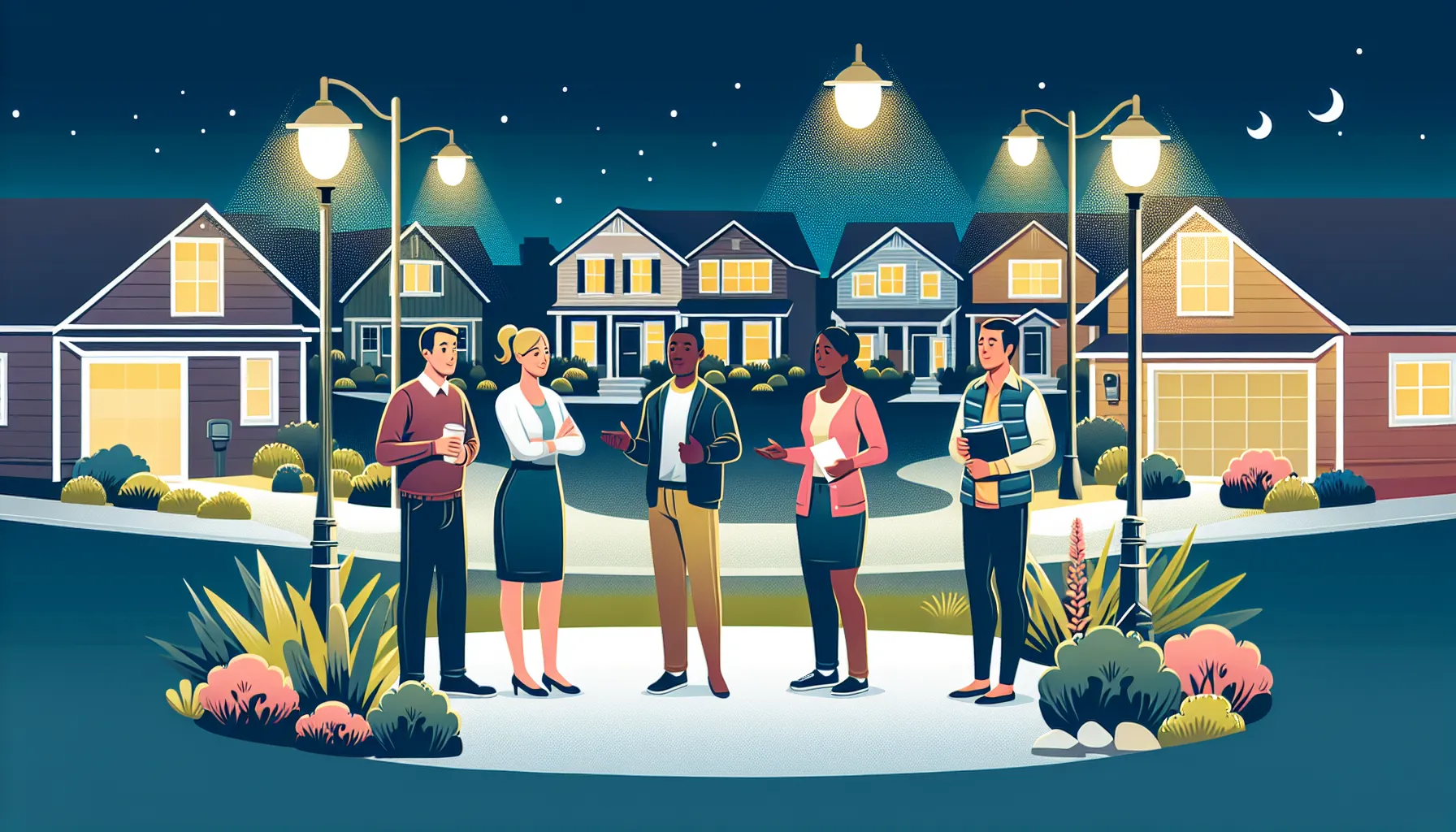
Organizing security together makes my neighborhood feel safer. I notice more peace of mind knowing my HOA works closely with residents to address safety issues before they become problems. Does your community feel more at ease when everyone works as a team?
Shared planning means faster action during emergencies. When everyone knows who to contact and what steps to take, response times drop. For example, if a fire alarm sounds or suspicious activity is spotted, clear protocols help protect neighbors and property right away.
Regular meetings give me a place to speak up. I can share my concerns, like recent break-ins or dark walkways, and hear from others about what worries them. Have you found your neighbors voice concerns you hadn’t considered?
Security patrols deter unwanted activity. Coordinated schedules and regular drive-bys or foot patrols make it harder for trespassers to go unnoticed. Visible updates like fixed lights and trimmed bushes back up these efforts.
Technology upgrades make entry safer and easier to manage. With access systems, visitor logs, and cameras checked routinely, only those allowed in get through. Does your HOA update security tools as new needs arise?
Stronger relationships with local police build trust and improve support. I’ve seen that when my HOA partners with law enforcement, help arrives faster and questions get answered quickly. Some communities even host safety workshops or crime-prevention events, making it easier for everyone to learn together.
Consistent maintenance keeps properties inviting while discouraging crime. Clean landscaping, working gates, and well-lit walkways signal that residents care about security. How often does your HOA review property conditions to spot risks early?
Open communication connects residents. Neighbors stay informed about important issues and upcoming security improvements. When everyone feels welcome to participate, the community feels closer and more prepared for anything.
Challenges and Considerations
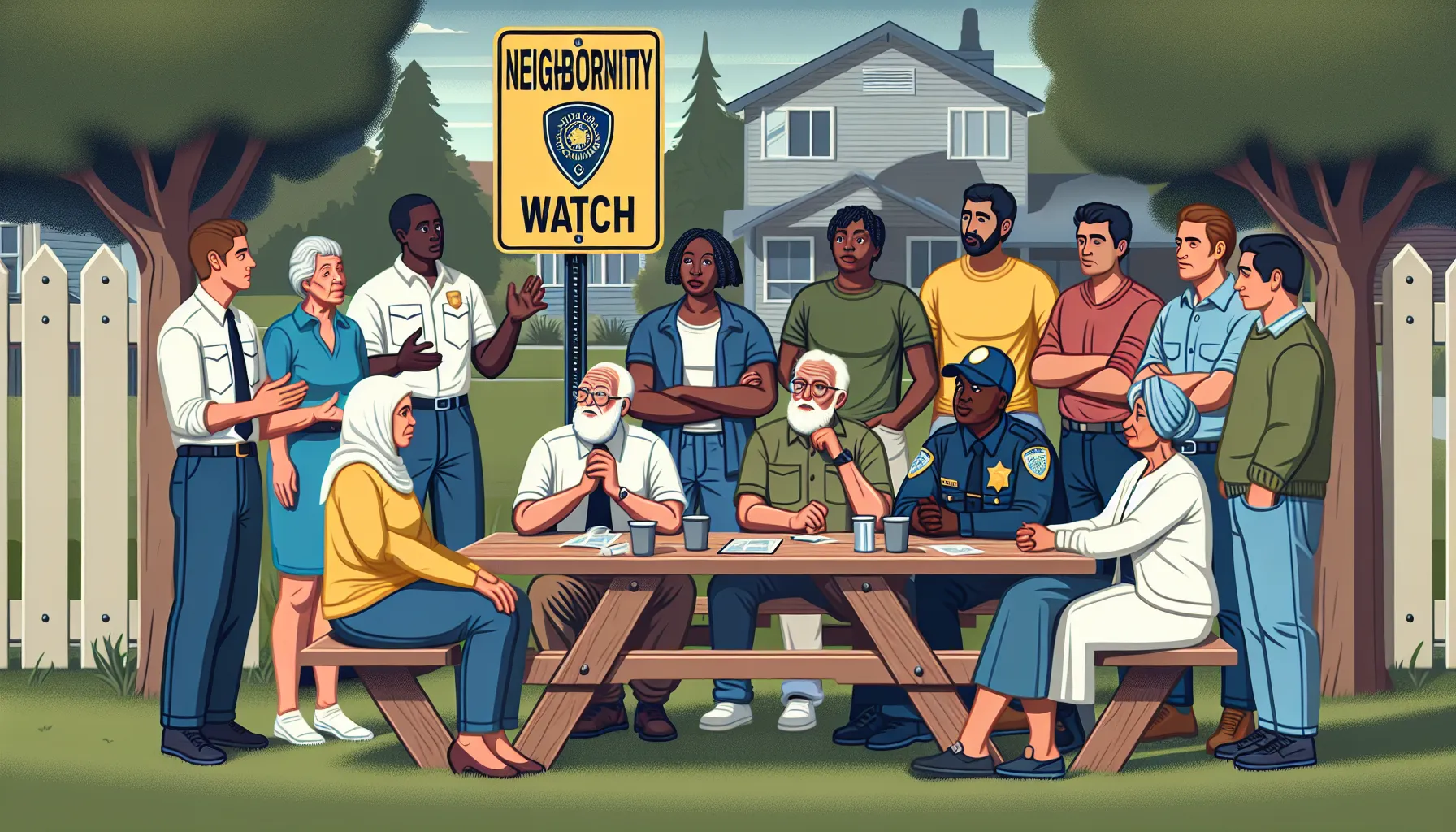
Coordinating HOA security in Menlo Park brings several challenges for residents and board members. Balancing privacy with security often creates debate. Some neighbors value increased camera coverage, while others feel uncomfortable with constant monitoring. How does your community address concerns about personal privacy when discussing new security systems?
Budget limits can make decisions difficult. Investing in access control, patrols, and technology adds costs. Deciding which areas matter most and choosing between features takes clear priority setting. Many HOAs weigh requests for upgrades against resources, leaving some needs met while others wait. What improvements would you consider most necessary for your neighborhood?
Vendor selection also presents its complications. Different providers offer a range of services with varying levels of reliability, cost, and customer support. HOAs collect feedback from fellow residents and compare service levels before making choices. Do you find it helpful to share recommendations or concerns about current security partners during meetings?
Clear communication often protects the community from confusion or conflict. Security policies and emergency plans require updates as risks change. Miscommunication can lead to inconsistent patrols, missed maintenance, or delays in responses to incidents. Do all residents in your community receive timely updates on security issues or safety concerns?
Property maintenance ties directly to safety but gets complicated by scheduling, weather, and varying opinions on priorities. For example, fixing broken lights quickly reduces risk, but organizing repairs can face setbacks. Consistent inspections help, yet they need cooperation from residents and property management. How often does your HOA check for security-related maintenance issues?
Working with local law enforcement also brings questions about the best way to build relationships and set response expectations. Outreach helps improve trust and effectiveness, but each community brings its own perspective and history that might affect collaboration. What strategies has your HOA used to develop stronger connections with local authorities?
Addressing these challenges calls for listening, flexibility, and a willingness to find middle ground. What steps could your neighborhood take to create better security coordination while respecting everyone’s needs?
Choosing the Right Security Partner for Your HOA
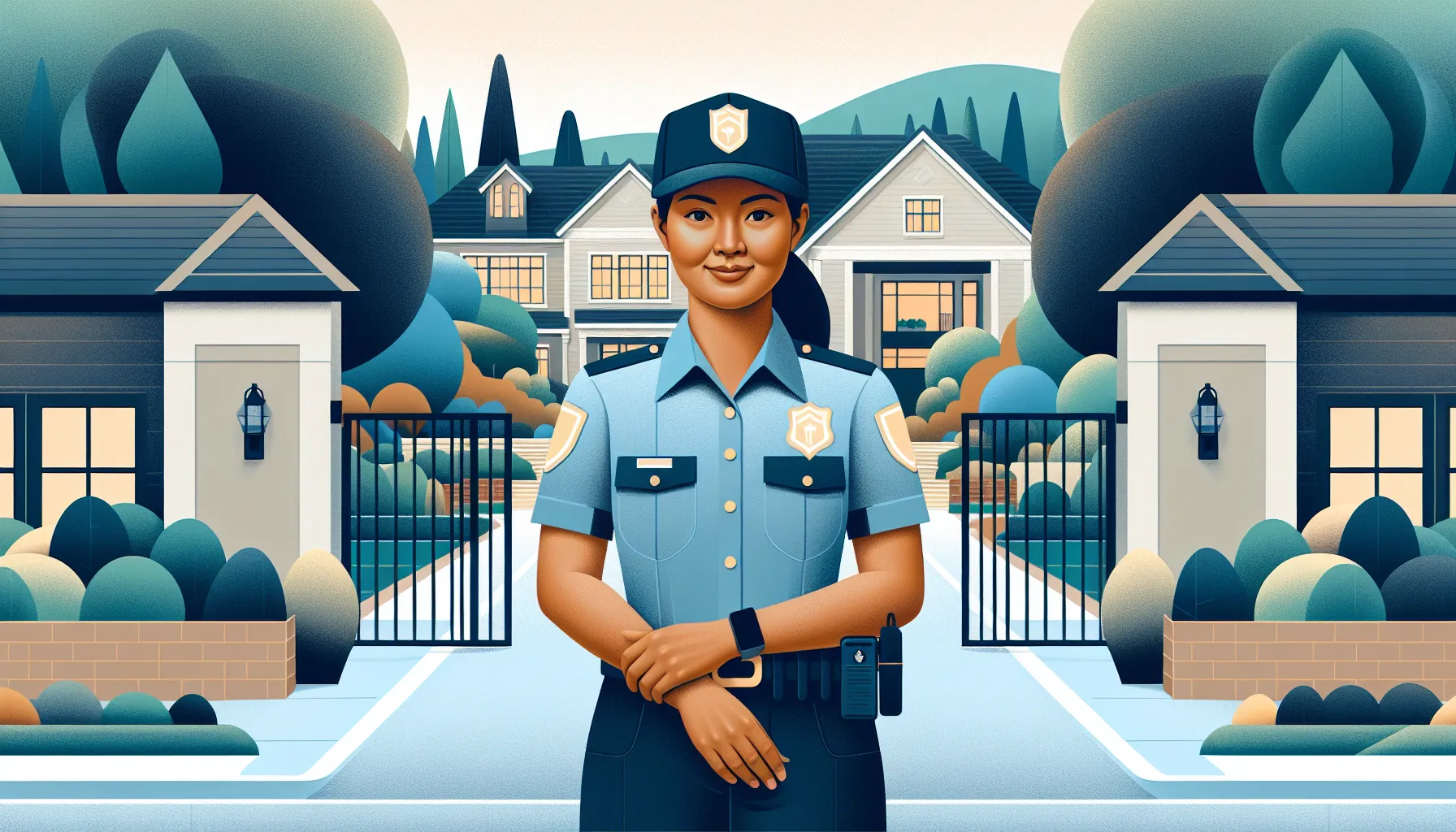
Picking a security partner for your Menlo Park HOA shapes the day-to-day peace of mind for every resident. I start by asking: What are my community’s biggest safety concerns? For some, visible patrols offer reassurance. For others, discreet monitoring is enough. Which approach matches my residents’ values and comfort levels?
Experience with HOAs matters. I look for security firms with a strong track record in communities like mine—communities with shared spaces, ongoing activities and diverse needs. How have they responded to local issues such as package theft or late-night noise? References and case studies show how they handle real challenges.
Communication style tells a lot. Reliable partners keep me informed and answer questions promptly. I check if they offer regular updates about incidents or trends in the area. Do their teams seem friendly and approachable? My residents want communication that makes them feel heard and respected.
Cost matters, but I balance price with quality. Transparent pricing helps avoid hidden fees or sudden changes. I compare options using detailed proposals outlining what’s included, from routine patrols to emergency response.
Technology offers more choices. I ask about systems like access control, cameras and monitoring platforms. Which tools fit my property’s entryways and layout? How do they maintain and update equipment to keep up with new risks?
Insurance and compliance can’t be ignored. I confirm proper licensing, sufficient liability coverage and knowledge of Menlo Park ordinances. This attention reduces risk for my HOA and builds confidence among neighbors.
Resident input matters too. I collect feedback using surveys or meetings. What are their top priorities? Which features make them feel safest? This feedback directs my selection and opens the door to real buy-in from the community.
Every HOA has its own mix of people, needs and budgets. Have you asked your neighbors what matters to them in a security partner? What qualities would make your community feel safer every day?
Conclusion
HOA security coordination in Menlo Park is all about building trust and creating a safer environment for everyone. I believe that when we listen to each other and work together it’s easier to find solutions that fit our unique needs.
By staying open to new ideas and involving every resident in the process we can make real progress. I’m confident that with the right planning and commitment our community can enjoy both peace of mind and a strong sense of connection.
Frequently Asked Questions
What is the role of an HOA in community security?
An HOA (Homeowners’ Association) coordinates security measures, sets community standards, and facilitates communication between residents, service providers, and local authorities to enhance safety and foster a sense of connection within the neighborhood.
Why is teamwork important for HOA security?
Teamwork among residents, board members, and service providers ensures everyone’s concerns and ideas are addressed, leading to effective and inclusive security solutions that benefit the entire community.
How can residents get involved in HOA security efforts?
Residents can attend meetings, join neighborhood watch groups, participate in public safety workshops, and provide input on security priorities, helping create a safer and more connected community.
What are some effective security measures for HOAs?
Effective security measures include access control systems (like keypads and visitor logs), surveillance cameras, organized patrols, regular property maintenance, and clear emergency response plans.
How does property maintenance impact community safety?
Consistent property maintenance, such as fixing broken locks and improving lighting, helps deter crime and prevents minor issues from becoming larger security risks.
How can HOAs collaborate with local law enforcement?
HOAs can collaborate by developing emergency response plans, inviting police to community meetings, organizing safety workshops, and building ongoing partnerships to improve trust and response times.
What challenges do HOAs face in coordinating security?
Challenges include balancing security with residents’ privacy, working within budget constraints, selecting reliable vendors, and ensuring clear communication of policies and emergency procedures.
How should an HOA choose a security partner?
HOAs should seek partners experienced with HOA needs, transparent about costs, skilled in technology, and willing to communicate openly. Resident feedback should be considered to ensure chosen measures fit community values.
How do regular security meetings benefit the community?
Regular meetings keep residents informed, allow them to raise concerns, provide insight into local safety trends, and help plan timely responses to emerging issues.
Why is open communication important for HOA security?
Open communication builds trust, encourages resident involvement, reduces misunderstandings, and ensures everyone knows the community’s security policies and emergency procedures.
